It's a short run, in London, but a sweet one. At the Coliseum, English National Ballet's revival of a 1971 Giselle is a showcase for a company on exceptionally calibrated form, offering audiences a taste of its myriad talent over six more shows after Wednesday's opening [the cast changes each time - Ismene Brown reviews a second cast below]. On the evidence of the latter, I'd gladly go to all of them: soloists can either shine or die on their feet in this most intricate of Romantic ballets, and if time were not the defeating beast it usually is, it'd be hugely instructive to see over five days who does what and how, in, especially, the main roles of Giselle and Albrecht.
The production is uncluttered and fiercely loyal, it seems, to its creator Mary Skeaping's understanding of its 19th-century restraint and delicacy (Giselle was first staged in Paris in 1841). The rusticity in Act 1 is an easy mix of the authentic and fairy-tale, but far from chocolate-boxy. Giselle's grape-harvest surroundings, in counterpoint to the second act's ethereal ghostliness, has to be friendly and somewhat believable, and this the late David Walker's design achieves perfectly.
In the title role, Erina Takahashi is exemplary; touchingly shy towards Albrecht's first overtures disguised as Loys, winningly eager in their pas de deux for the visiting Prince of Courland. If anything - and if it's ever permissible to say this about Giselle - Takahashi is almost too rarefied, so slight as to resemble, when expiring at the end of Act 1 from despair at Albrecht's deception, a ragdoll. The risk that this might become distracting, or be simply wrong, in her duets with the tall, physically plenteous Dmitri Gruzdyev is, however, avoided by the sheer brilliance, the exactitude, of his and her respective techniques. The filigree intricacy of her footwork is sensational. The pair is a pleasure to watch throughout.
Narrative cedes in Act 2 to ritual and set-pieces, with the Wilis sweeping across stage like a snowstorm, vampirically seeking vengeance on perfidious, inconstant men, but always, in the grands pas, beautiful. The one uneven note, for me, was Elena Glurdjidze as the Queen of the Wilis: Glurdjidze seemed more stiff than authoritative, a little uncertain (as an ENB senior principal she's set to dance Giselle on Friday), but I feel unkind in the criticism. This Giselle is emphatically not about stars but about allowing ENB, and numerous senior principals and principals, to breathe in a great classic. Exquisite adornment rings in the New Year at St Martin's Lane's grandest venue.
About Men Y Men by current artistic director Wayne Eagling, kicking the evening off, it's less easy to be enraptured. Nine bare-torsoed men perform well-tempered duets and pleasing ensemble work to two short Rachmaninov pieces, but truth be told the music's richer than the choreography. Eagling has perfectly reasonably noted that the boys have little to do in the second part of Giselle and this is his creative solution, but it doesn't say very much. A creamy confection, perhaps, more momentarily diverting than necessary - but fast forgotten once the main ballet weaves its binding spell.
Ismene Brown reviews Elena Glurdjidze and Arionel Vargas in the leading roles
Last night (Friday) Elena Glurdjidze moved over to the lead role of Giselle, and proved that hers is one of the most memorably emotion-wrenching interpretations to be found anywhere today. ENB takes this vintage-feeling production off on tour around Britain, headed by this marvellous artist, more dramatically versatile than most, musically rare, and always piercingly sincere in her communication of new feelings - never, ever hackneyed.
She bounced on as the virginal Giselle, flying in happiness, but with a fearfully thin skin, wearing her sensitivity like an allergy to light. One moment beaming at Albrecht (Arionel Vargas, for whom hackneyed is the only word), next flinching from his easy promises, she is the only Giselle I can recall who made me wonder where her absent father was - did he abandon her not long before the story begins? Is that why Giselle is so intensely vulnerable to betrayal?
You will hardly ever find a Mad Scene so piteous as Glurdjidze's, with sightless eyes, or so gently passionate as her Act 2. If I felt she handled the technical challenges without the last kiss of Romantic finesse, it fit her interpretation of a rustic girl ruined (Lesley Collier was similarly wounded and wounding). Among the performance's other pleasures were the chill, intense Hilarion of Fabian Reimair and (I take it) Alison McWhinney as the first of the two Wili soloists, whose tall elegance and careful footfall stood out.
It was also a treat to hear conductor David McCallum helming this delicate score with such loving interest - for instance, a welcome exuberance in the Act 1 Courland court fanfares (an impressive passage of music often thrown away). A bouquet too to the viola soloist delivering Giselle's redemptive prayer in Act 2 with warm feeling.
- Giselle and Men Y Men continue at the Coliseum until Sunday 24 January; and reappears at Glasgow's Theatre Royal between 17 and 20 March, and at Woking's New Victoria Theatre between 6 and 9 May. ENB's 2010 tour (sponsored by SkyArts) also includes Corder's Cinderella, touring to Bristol, Manchester and Southampton. Further information on the ENB website

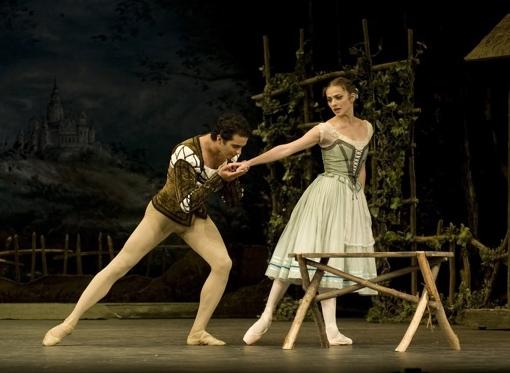


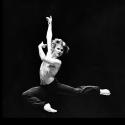
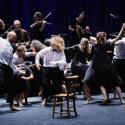
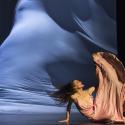
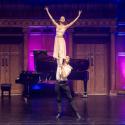

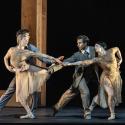
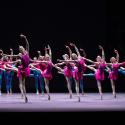
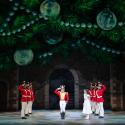
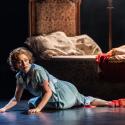

Add comment